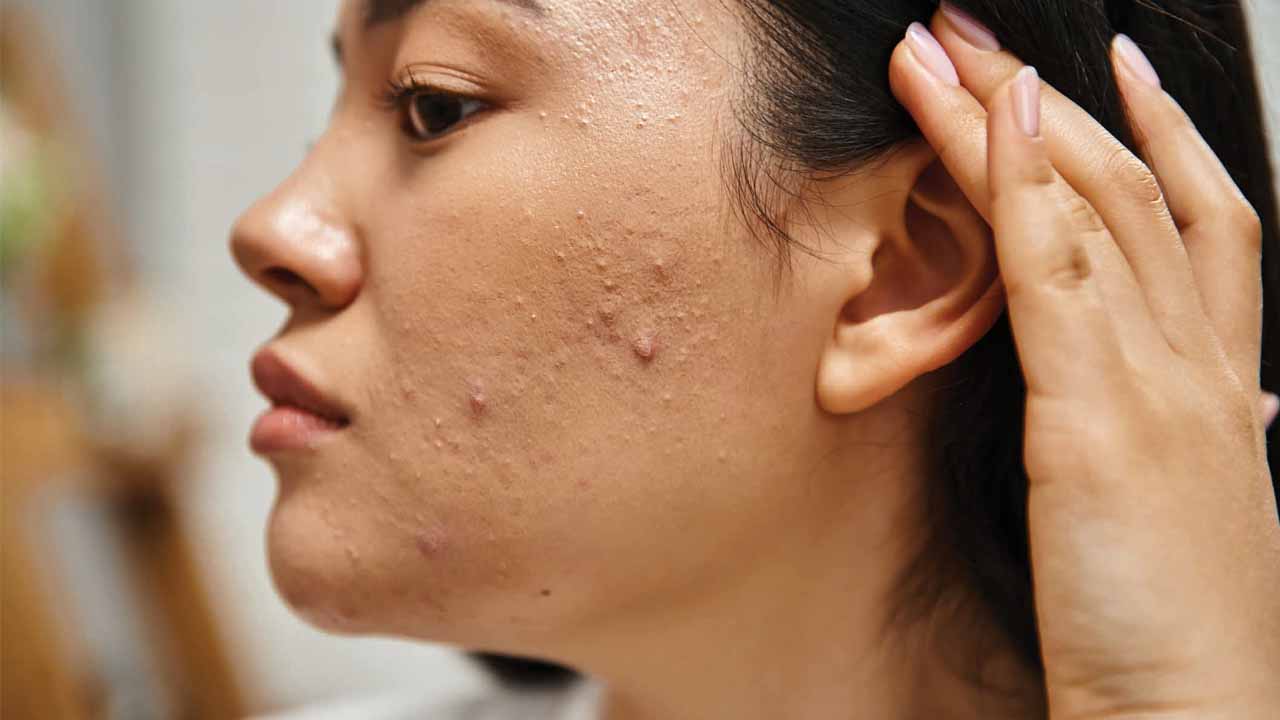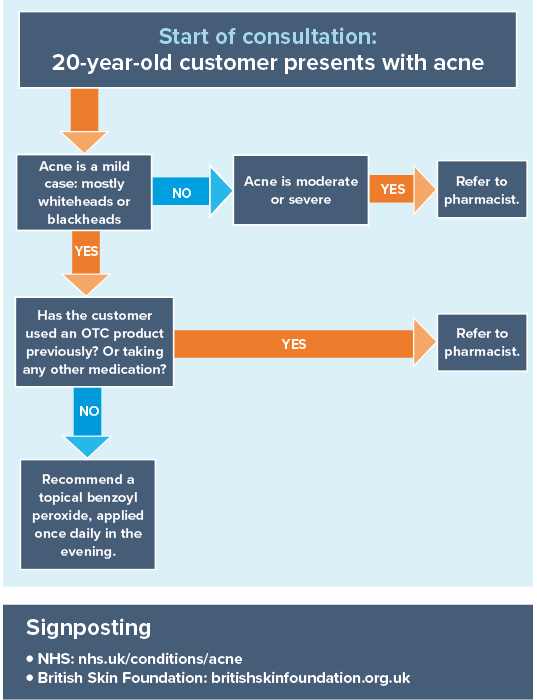In Learning
Follow this topic
Bookmark
Record learning outcomes
Self care tips
- Avoid squeezing or picking spots to help reduce scarring
- Wash skin with a gentle cleanser in the morning and at night. Avoid washing the face with strong detergents, harsh astringents or hot water. Pat the skin dry gently using a clean towel
- Wash hair regularly – especially if it falls over the face
- A healthy and balanced diet is important for general health. There is little evidence that greasy/sweet foods aggravate acne
- There is little evidence that makeup impacts acne, however, oil-free and non-comedogenic products are recommended as they avoid the pores becoming clogged.
When to refer
- Anyone who has seen no change after using an OTC product for two months
- If spots suddenly become worse
- If there is visible scarring
- Anyone allergic to benzoyl peroxide
- If an adult has spots for the first time.
Whenever you talk to any customer, remember WWHAM:
Who is it for?
Acne usually affects teenagers and people in their 20s. Spots may indicate a different condition for older customers.
What are the symptoms?
Gather as much information as you can to be able to recommend the most appropriate treatment. You may need to refer to the pharmacist.
How long have the symptoms been present?
Longevity of symptoms, as well as how they appear, will help you to establish the degree of acne. Mild cases are mostly whiteheads and blackheads. In moderate cases, these are present but more widespread and are accompanied by papules and pustules. Severe cases, lots of large painful pustules or cysts, will also include scarring.
Action already taken?
Establish whether the customer used a product that hasn’t worked or wasn’t appropriate.
Medication?
Some medicines, such as steroids and oral contraceptives can cause acne. Anyone who is taking other medication should be referred to the pharmacist.
You don’t have to ask these questions in order, and a customer might give you some of this information without you asking. As long as you get them into the conversation, you should be able to find out the information you need in order to make a recommendation. The golden rule to remember is: if in doubt, refer to the pharmacist. Don’t be embarrassed to ask for their advice as they have a lot of information about products and symptoms to hand that you may not be aware of.


